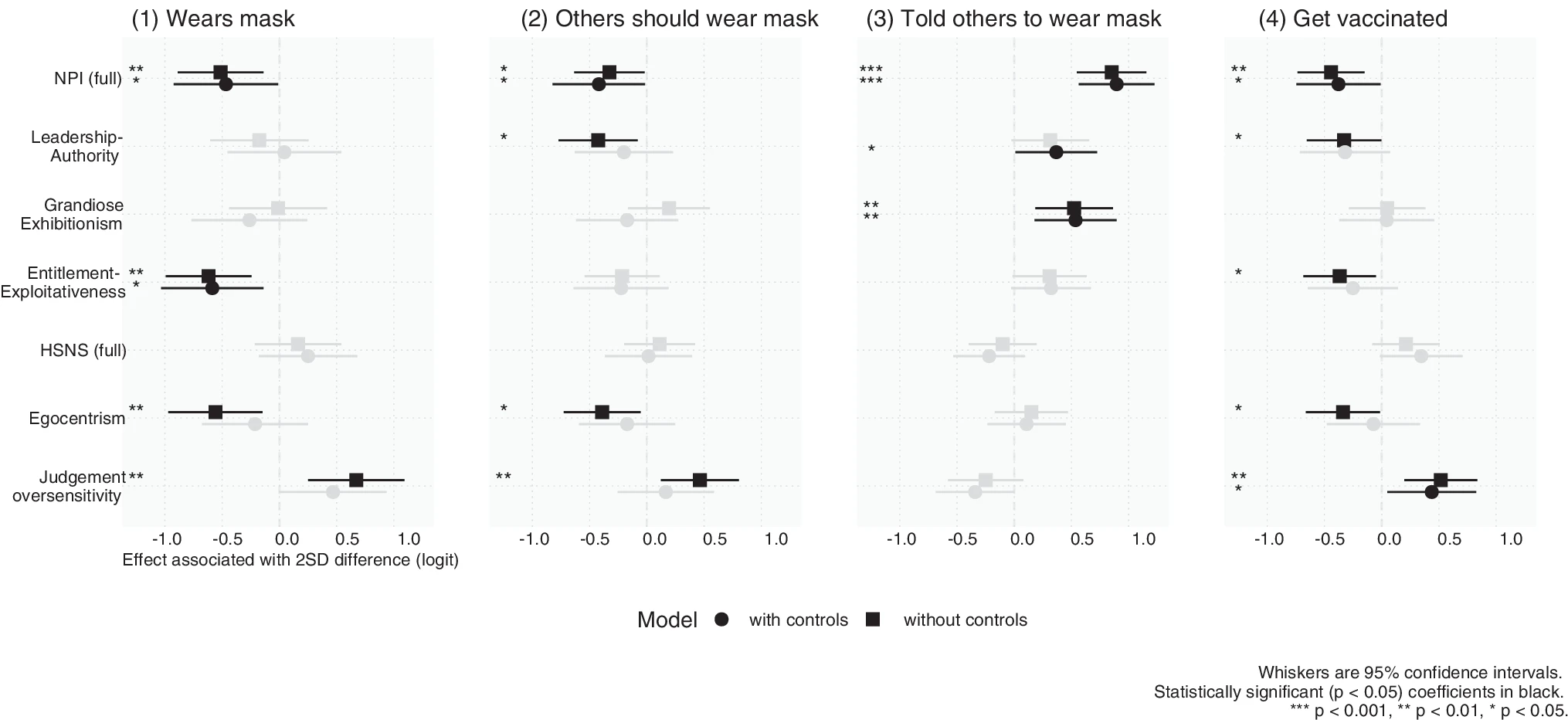During the covid-19 pandemic, experts have been advocating mitigation strategies such as wearing masks and vaccination to help reduce the spread of the virus. According to a new study, a person's level of personal narcissism affects whether they are more willing or less willing to participate in these efforts**

Researchers, including Peter hatemi, a distinguished professor of political science at Pennsylvania State University, analyzed the impact of grandiose and fragile narcissism on people's willingness to wear masks in public or get covid-19 vaccine.
Hatemi explained that boastful narcissism is characterized by the pursuit of social status and the hope that others will see them as important and admirable people. At the same time, fragile narcissism is associated with selfishness and egocentrism or being particularly sensitive to the judgment of others.
After controlling for personal politics, perceptions of risk, national policies and other important demographic factors, the researchers found that participants with a high degree of boastful narcissism were less likely to wear masks or get vaccinated. However, those who chose to wear masks with a higher degree of boastful narcissism were also more likely to tell others to wear masks, too.
Participants with a higher degree of fragile narcissism were also less likely to wear masks or vaccinations if their personality was also more self-centered. However, if their personality also makes them more sensitive to the feeling of being judged, they are more likely to participate in these mitigation measures.
The researchers say these findings can be used to help shape information transmission in the future. The study was recently published in contemporary psychology 》In the magazine.

"If you want to persuade a person with a high level of narcissism to wear a mask or participate in other mitigation measures, make the mitigation measures cool and unique to meet their outstanding needs. For those who are too sensitive to judgment, you can tell them that the mitigation measures are socially recognized. These two strategies seem to tap their personality better than emphasizing greater interests," hatemi said
Opinions on the covid-19 pandemic and mitigation measures aimed at slowing its progress are widely divided in the United States, according to the researchers. Previous studies have found that conservatives are less likely to feel vulnerable to covid-19, or that the virus is a serious threat, and are more likely to believe that the media have exaggerated the risk and impact of the virus.
However, researchers suspect that politics alone cannot explain people's behavior and opinions about the epidemic, and personality may also play a role.
"When encouraging people to wear masks or vaccinate to help themselves and others, there is a personality trait that makes us feel that it may be an explanation for those who are unwilling to comply. My collaborators and I have been studying narcissism in other identities for quite a long time, and it seems that it may be closely related to these types of behavior," hatemi said
In this study, researchers collected information from a nationally representative sample of 1100 American adults in March 2021. They asked participants several questions about wearing masks, as well as vaccine behavior and attitudes. Participants also completed an assessment designed to measure the level of narcissism in their personality. Finally, participants were asked how worried they were about covid-19.
While extreme narcissism can be a diagnosable personality disorder, less narcissism is also an aspect of everyone's personality, which exists in a continuum, the researchers said.
"We all have some degree of exaggeration and fragile narcissism," hatemi said. "This is a natural part of all human characters, because without it, we can't function normally. But this part of narcissism we all have, which is easily influenced by political information and 'hijacked' into these different stories, which is what we saw during the covid-19 epidemic."